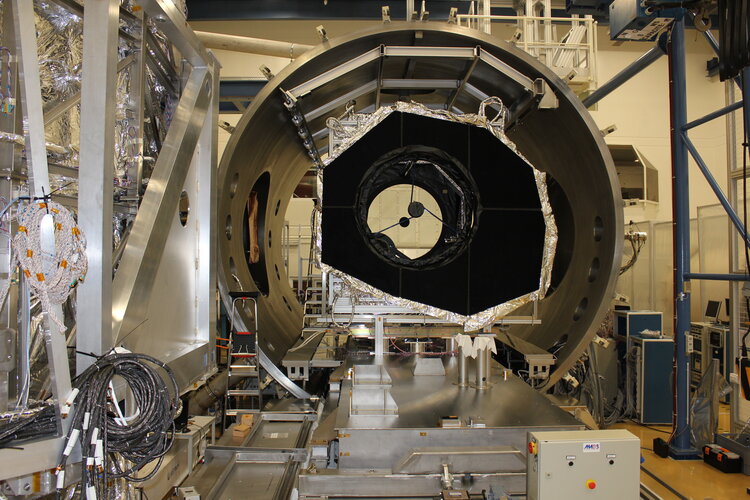
“We are very happy about the results of the testing, which found the telescope to be in good shape,” says Alexander Short, Euclid’s Mission and Payload Manager.
“Testing revealed an anomaly which had to be resolved rapidly in order to avoid schedule delays. A ‘Tiger Team’ of ESA and industry experts was convened. The problem was diagnosed as a software issue which has since been resolved. We are happy to send a healthy telescope to the next stage of testing and integration with the rest of the spacecraft.”
The next step will be to transport the payload module to Thales Alenia Space in Torino, Italy, where it will be integrated with the service module to form the final, finished Euclid spacecraft. Euclid will then undergo another series of acceptance testing including mechanical tests and another thermal vacuum test at integrated system level.
Euclid will launch from Europe's Spaceport in French Guiana, with a launch window opening at the end of 2022. It will be orbiting the second Sun-Earth Lagrangian Point (L2), which is located 1.5 million kilometres directly 'behind' the Earth as viewed from the Sun.



